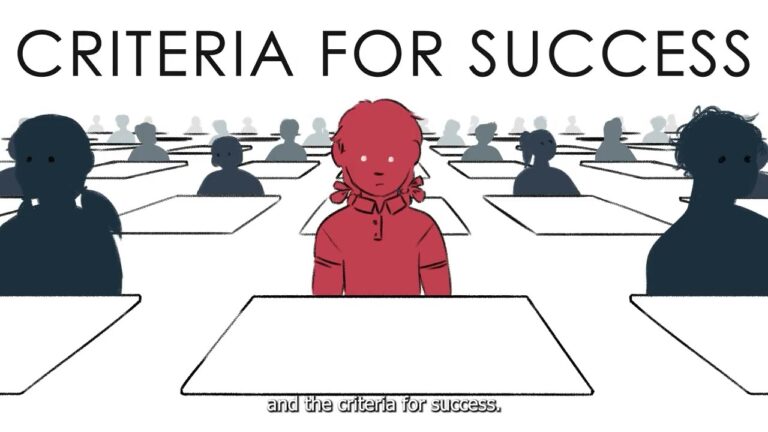Syria

The tragedy of Syria is unbearable for us to witness; albeit vicariously via the news media. It’s not an earthquake; it’s a war. It’s a situation that cannot be resolved by humanitarian aid.
Militarily there are three hypothetical outcomes, but only two that are realistic. In any war, it behoves the participants of a war to recognise when their military objectives are unachievable.
At its core the war is about one man – one regime – the Assad regime in Syria. The ‘West’ has an imperial policy of selective regime change. While the present policy has many precursors, the West procured regime change in Afghanistan in 2001 and Iraq in 2003. Then, in January 2011 protestors in Tunisia, inspired by the liberal democratic model (in its broadest sense), gave birth to the ‘Arab Spring’ by overthrowing their president.
The Arab Spring created an opportunity for western powers to facilitate further regime change, with the most prominent targets being Libya, then Syria. (I think we can assume that had regime change been accomplished in Syria, then Iran was – in 2011-think – the next target; Mahmoud Ahmadinejad was in power from 2005 to 2013.)
So rebels in Syria were tacitly encouraged to rise up and overthrow the unlovely (and dynastic) Assad regime. While the western pursuit of regime-change over-extended, the Assad regime showed both its teeth and its resilience, making the West more determined to persist with its ‘humanitarian’ objective. Then the seemingly ‘out-of-left-field’ emergence of ISIS gave the western powers one further excuse to pursue regime change. If Syria could become like Iraq, without its uncompromising autocrat, the West could possibly emerge with an outcome that could pass as a military victory in the region.
All changed when the Russians entered the conflict, with an objective diametrically opposite to that of the West. Russia was invited into Syria by Assad to prevent regime change, much as the United States had been invited into South Vietnam five decades earlier.
There are no ‘good guys’ in the Syrian Civil War. Militarily, the siege of Eastern Aleppo may be the endgame. The Russians clearly think so. There are two possible outcomes: regime retention if the rebels of Aleppo give up, or stalemate (and indefinite carnage) if the sieges persist. The western objective – regime change – is only achievable at the expense of a war with Russia.
The West needs to negotiate an amnesty – including an offer of exile for those who would face the worst in a post- Civil War climate of retribution. And the West should leave Russia (and Assad) to deal with Isis in Syria. In time, a lot of time, a new Syria can emerge. As with Cuba, a future American president may even agree to visit; maybe as soon as 2050.
There is no chance of a successful military outcome for the western-aligned forces in Syria. A good general knows when he cannot win. Assad rules Syria, and will continue to do so for a while yet. It’s realpolitik. The Arab Spring is over. Let’s move out of denial.







All supposed to be jihadists, I am sure many are, but what difference does it make, as Bashar is hated so much, so is his regime, so radicals and less radicals declare war against him. We have propaganda from both sides, Russia and US, so do not be surprised
https://www.youtube.com/watch?v=UStBEIcdhqk
Some on the left believe the west o US support IS, I think you are misguided, they hate the Us Qand fight it:
https://www.youtube.com/watch?v=an-3PDsYUTw
Just a clip soon to be forbidden, but Trump idiots will have their “sources”, I am sure.
http://www.politico.eu/article/why-the-arabs-dont-want-us-in-syria-mideast-conflict-oil-intervention/
Whatever anyone believes its an appalling tragedy for both sides and all Syrians.
One glance at Libya and what happened there is surely enough to rally the population around Assad whether they strongly supported him or not, and continuing atrocities by “moderates”( Al Nusra front etc.) with no clear distinction from extremists would only reinforce that trend.
Assad former “friend” of America in 2008 declined to allow a pipeline to be built from Quatar through Syria that could supply the European market and damage the Russian natural gas market and economy, coincidentally or not after that the American narrative changed
By the way, to get a true perspective of what really goes on in the Mid East, we better not forget this kind of “economic activity”, offering huge “rewards” to numerous western and eastern arms manufacturers, peddlers and new “tools” to try out to the many buyers (some of whom will “supply” them to their friends in various groups in Syria also):
http://www.idexuae.ae/
I wonder, does NZ Inc also have a stall there, planned for the next defense exhibition in Abu Dhabi in 2017? What about
http://www.nzdia.co.nz/
http://www.scoop.co.nz/stories/PO1511/S00192/new-report-on-nzs-weapons-and-military-related-industry.htm
““Meanwhile, the New Zealand government has outstanding contracts with the world’s largest weapons manufacturer, Lockheed Martin, for a half-billion dollars. This is a company that recently justified the widespread horrific bombing of civilians in Yemen by the Saudi Air Force using Lockheed-made F-16 fighter jets and Hellfire missiles.”
And are these guys still playing a role?
http://www.rakon.com/
The NZ defence manufacturers are delighted about local plans, at least:
http://www.scoop.co.nz/stories/BU1606/S00251/huge-opportunity-for-nz-defence-manufacturing-companies.htm
So is John Key also representing the interests of NZ Inc when working to get a free trade deal with the Gulf States? I bet he is, so all talk of “peace efforts” at the UN Security Council should perhaps be scrutinised a bit more, for what it really means.
Now what do you mean with that, Mr Andrew Mischief?
Quote:
“So Russia was “invited” as Martyn claims, they were there all along, supplying Assad with munitions including chemical warfare agents for use against its own populations.”
It appears you rush to making comments without even reading a post properly, let alone take note of who the actual author is.
This was not written by Martyn.
“The western objective – regime change – is only achievable at the expense of a war with Russia.”
I do not think that the US or Russia will be keen on a war, but one day it will happen, maybe just by “accident”, one side overstepping the line too far and others hitting back.
If Trump wins and gets into the White House and will be Commander in Chief over the Pentagon and so, we have stuff to worry about, really worry about. It may not be Russia he may push too far, there is perhaps more of a threat in East and South East Asia, which will also drag New Zealand into a new serious major conflict.
“So rebels in Syria were tacitly encouraged to rise up and overthrow the unlovely (and dynastic) Assad regime. While the western pursuit of regime-change over-extended, the Assad regime showed both its teeth and its resilience, making the West more determined to persist with its ‘humanitarian’ objective.”
I think that the rebels that Keith refers to did already have other supporters, not the west, to do what they set out to attempt.
Once the fighting started and escalated did the west step up to support certain rebels, of course for the intended purpose to get rid of the Assad led regime.
Re this:
“All changed when the Russians entered the conflict, with an objective diametrically opposite to that of the West. Russia was invited into Syria by Assad to prevent regime change, much as the United States had been invited into South Vietnam five decades earlier.”
While it seems a past time of some to primarily blame the west, Syria’s government has had military and other support from Russia, formerly the Soviet Union and also to some degree the Iranians for decades. So these forces were already supporting Assad from the start.
Assad – and especially his father – was already responsible for many human rights breaches, his father also guilty of war crimes or genocide against minorities, who dared rise up.
I would not forget that the regime some seem to defend is as guilty as other murderous ones in other places on the globe.
The west of course loves preaching about human rights and democracy and so forth, but we know, often they are more interested in strategic influence and more economic opportunities for their own businesses.
There are no good and bad sides here, perhaps with the exception of ISIS, who I consider something extremely evil, given the way they want to force people to live in medieval kinds of societies, in their Caliphate. Jabhat Fateh al-Sham seem to also want to turn the clock back, but they are not quite on the same level as ISIS. Then there are of course other groups, and all will have committed at least some atrocities, same as the regime has done, for instance by indiscriminately dropping barrel bombs and apparently also chlorine gas bombs, that also killed many civilians.
“At its core the war is about one man – one regime – the Assad regime in Syria. The ‘West’ has an imperial policy of selective regime change.”
That is true for Syria and the countries you mention, but the attempts to use force to change a regime are not only ones coming from the west (often the US, earlier also France and Britain).
Remember the Cold War, and what happened when Hungarians tried to have more freedom, when the Czechs and others also had a go to have it their way, rather than what was desired in Moscow. That is just one example. Imperialism is also not something that has only happened the last century or so, colonialism and imperialism have been practiced by older regimes in various places on earth at various times.
We should perhaps rather talk about strategic influencing of peoples and countries, which includes regime change. On a much smaller scale even New Zealand plays its role as a small regional power in the Pacific. That is not always one of the hands off helping power behind the scenes, New Zealand has strategic and economic interests, so do of course the larger nations.
Syria is a battlefield where wars are fought on national, regional and global scales, that is because there are many players behind the scenes who pull strings and support local forces of various shades.
Keith absolutely spot on, meddling americans
Agree, Aircooled. First two responses came from over-zealous, partisan bigots.
Congratulations on parroting Western imperialist talking points. You get a cookie, and if you keep it up, maybe your own propaganda site as an independent commentator! #bellingcat #kachging!
If Russia had been there before 2011 this would never have happened. Pleeease.
Whatever you want to say about Assad, he has the overwhelming support of his people against this insurgency, that’s how he has survived till Russia started thumping the terrorists and mercs. Yes, the FSA did exist at the outside, on the money and promises from the West that the lgitimate govt would fall flat – but they no longer exist, and former rebels are being reintegrated into society via restorative justice – see the UAS PEace Council visit, on youtube, very illuminating. Syrians are no longer fighting Syrians, just as this was no legitimate Civil War at the outset – ie, would never have happened without US sponsorship.
What we have in Aleppo is 25% of the ISIS/terror/merc forces holding a key population hostage in the hope that if they are tortured enough the US will feel it has enough pretext to come in and support its mercs – which as Keith said, it can not do, or go to war with Russia.
So we have a truly awful endgame. THe terrorists know that the West need atrocities on the ground to wrap their media narrative around and as they get more desperate for support, they will commit more of them. of course govt bombings are causing civilian casualties too. Keith is right that the best solution to preventing civilian deaths is to withdraw funds and arms from the terror groups, and we will see that the phony civil war will lead to a process of reconciliation.
I doubt this will happen. I expect they will continue to bleed Syria by continuing to arms and fund ISIS and gain the oil from the fields they have captured. They will not give up the illegal military base they have built in Syria, that’s not what imperialists do, certainly not the 21stC US who are laying claim to wage war anywhere anytime: “the new international norm” they are the defender of. They will open a lightning new front, maybe Lebanon. So Isis will suddenly attack there and the US will jump in instantly, citing their “failure” in Syria as the reason for immediate action. I am sure an assault on Gaza is on standby, as per the US travel advisory, ready for Israel to profit under the cover of more “media friendly” military action.
PB;
Could not have said it better.
Links about current news that we will never see on MSM in order of occurrence. The second one looks like it will not appear on RT either.
http://www.globalresearch.ca/obama-is-protecting-the-terrorists-america-to-the-rescue-of-isis-daesh-testimonies-of-syrian-soldiers-who-witnessed-the-us-airstrikes/5546610
http://www.globalresearch.ca/u-s-coalition-intelligence-operations-room-inside-syria-destroyed-by-russian-missile-attack-thirty-israeli-american-british-turkish-saudi-qatari-intelligence-officials-killed-report/5547099
“THe terrorists know that the West need atrocities on the ground to wrap their media narrative around and as they get more desperate for support, they will commit more of them.”
Many of these atrocities are actually staged by Western MSM for
the images that are needed for the ‘Hearts and minds’ you talk
about. (the image above could well be one)
Mike in Auckland (below) is still banging on about ;
“as the regime has done, for instance by indiscriminately dropping barrel bombs and apparently also chlorine gas bombs, that also killed many civilians.”
These have already been investigated.
Part of my reply from Martyn’s 9/11 article.
“BBC has been caught actually involved in fabricating news as in the
scenes of children supposedly affected in the first gas attack
blamed on Assad. This was supposed to be the red line to bring in coalition forces. It failed.
Investigation showed the ‘rebels’ involvement.
Another, cutting and pasting of images from their archives to portray
a false narrative on more than one occasion.
This is why MSM is discredited now with only 6% trust in America.
They can even change words the reporter may have said in the
initial report with latest software.
And then there is a whole industry involved in ‘Crises Acting’.”
I suspect that ISIS (and TPTB) had in mind of Aleppo as their
capital city if they were successful in carving out their Caliphate.
Cheers.
“Whatever you want to say about Assad, he has the overwhelming support of his people against this insurgency, that’s how he has survived till Russia started thumping the terrorists and mercs.”
You are misguided, I fear.
https://www.theguardian.com/world/2011/aug/09/syria-protest-troops-attack-democracy-demonstrators
https://www.google.co.nz/search?q=syria+protests+2011&biw=948&bih=592&tbm=isch&tbo=u&source=univ&sa=X&sqi=2&ved=0ahUKEwj6stqb1LjPAhWDKpQKHXSADqsQsAQIOg
While Assad has some support of course, from the old vested interest holding lobby and business groups and his party membership, I bet he has at least as many enemies.
This simplistic good and bad, regime against terrorist, black against white argumentation is nonsense.
If Assad enjoyed the support you claim, it would never have escalated to this level. Sadly extremists took the opportunity and soon sidelined the pro democracy forces, thus taking control of much of the opposition and present fighting.
Stick to economics, you don’t have a damn clue of what you are talking about here. Somewhat amazingly I disagree with every single thing you said.